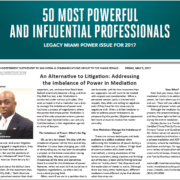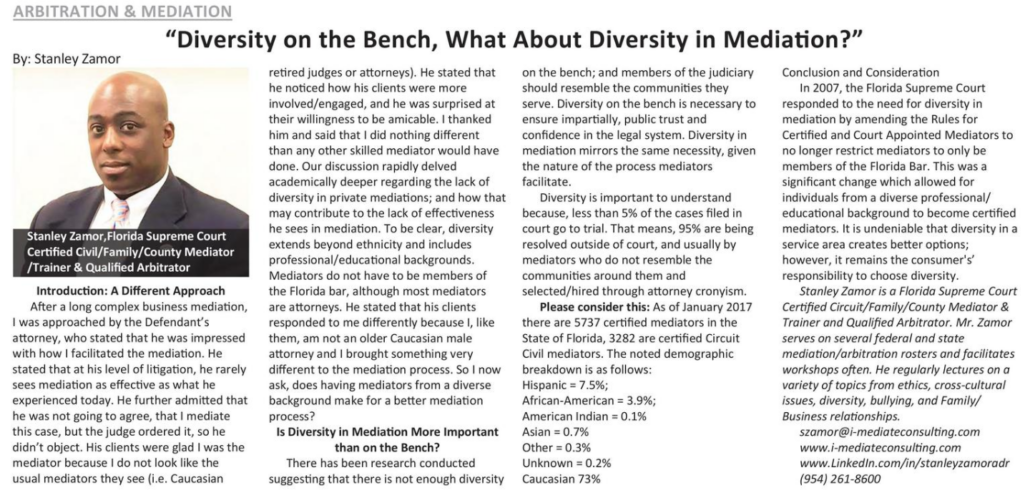“Selecting a Mediator? Sword-n-Shield vs Bridge-n-Brick”
As the parties and their attorneys were signing their settlement agreement they were all smiling and speaking with a tone of exhaustive relief. One of the attorney stated, “Who would have thought we’d be here…” Smiling, I already knew where this was going, I said, “What do you mean? What’s wrong with here?” He replied, “Well, we’ve been litigating this case for three years so trial seemed inevitable, but we finally resolved the case and we are all here cordial and satisfied.” I responded, “Well from what I’ve learned, the lack resolution and conflict boiled down to lack of communication and the ambiguity in the law.” They all nodded and I congratulated them for not focusing on their legal arguments and focusing on what the parties wanted and needed to move beyond the dispute.
Have You Heard?
You’ve probably heard that, “…the selection of an attorney is important and shouldn’t be considered lightly…” But do you know that the selection of a mediator is just as important and possibly even more difficult? Why? Well contrary to the Attorney’s Oath which includes how they are to vehemently advocate for their clients; the Florida Rules for Certified and Court Appointed Mediators describes the mediation process and ethical considerations as (but not limited to), “… a neutral and impartial third person acts to encourage and facilitate the resolution of a dispute without prescribing what it should be…their role is to reduce obstacles to communication…” So, a mediator’s role is quite different than that of an attorney. The mediator must be, and maintain, the appearance of being unbiased throughout the process. This is more challenging than you might think, especially since many mediators travel within a variety of social/professional circles.
Sword-n-Shield vs Bridge-n-Brick
Attorneys are adversarial by training; they either engage or defend within the litigation context. Conversely, mediators are supposed to be peace-bridge builders and collaborative. Since a mediator’s focus is on building consensus while exploring solutions; they should not be primarily focused on being persuasive and litigious.
5 Tips When Selecting a Mediator
So how do you select a mediator? The following are initial suggestions you may want to consider (this is not an exhaustive list):
- What Are Your Goals in Mediation – Manage your expectations and if you only care about “Winning”, then a mediator is not what you need.
- Prepare a List of Mediators – Check referral services/networks, or by word of mouth. Those who have gone through a mediation are usually a good source.
- Training, Knowledge & Research – Contact mediators on your list and ask to be sent promotional material illustrating writings that reflect skills in collaborative negotiations.
- Mediator Interviews – Have a conversation with the mediator, NOT, just their office staff.
- Style and Cost – Discuss what style of mediation they use and what is their fee structure.
Good Luck.
To see the article as it appeard in the Miami-Herald/Sun Sentinel CLICK HERE
Stanley Zamor is a Florida Supreme Court Certified Circuit/Family/County Mediator & Primary Trainer and Qualified Arbitrator. Mr. Zamor serves on several federal and state mediation/arbitration rosters and has a private mediation and ADR consulting company. He regularly lectures on a variety of topics from ethics, cross-cultural issues, diversity, bullying, and Family/Business relationships.
szamor@i-mediateconsulting.com
www.i-mediateconsulting.com
www.LinkedIn.com/in/stanleyzamoradr
(954) 261-8600







